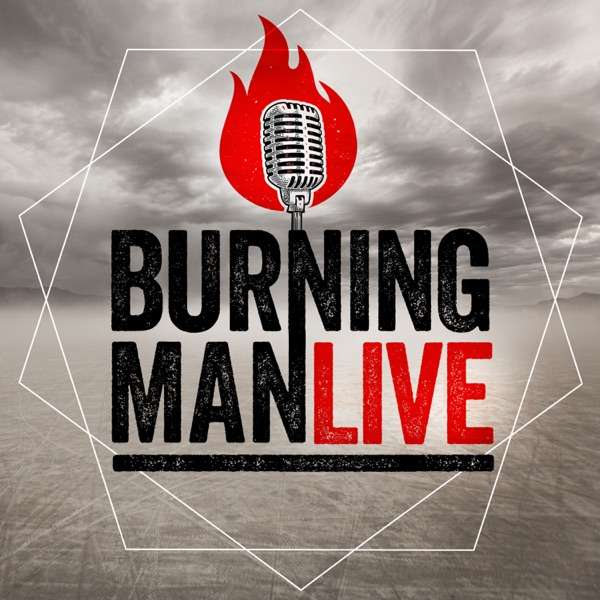In this episode we discuss the winds. But not the kind that come from you britches—we'll be discussing the hurricane season forecast and how to prepare for hurricanes and flooding.
Before we get into it, we will be finishing up the Being a Good Shepherd series starting with the next summer short. But today I wanted to take a break from that and talk to y'all about hurricanes. Specifically...
~ Preparing for Hurricanes...
Because it's summer time once again. That also means it's Hurricane season. And for us that marks a time of year we review our preps here on the Gulf.
Now for anyone that is not in an area prone to Hurricanes, this may be an interesting episode despite the focus. You can use this as a time of the year to backup and review your preps. So this show will largely apply to everyone.
There is something I want to clarify for everyone: Because it's been declared a low active year doesn't mean it's a low danger year. NOAA is predicting a below normal hurricane seasons.
~ NOAA is predicting a 70 percent likelihood of:
* 6-11 named storms (including May's Tropical Storm Ana) * 3-6 of which would become hurricanes * 0-2 major hurricanes – those of at least Category 3 strength.
This is below the 30-year average of 12 named storms, six hurricanes, and three major hurricanes.
The NOAA forecast is fairly close to The Weather Channel forecast.Which, they predicted below-average activity of:
* 9 named storms * 5 hurricanes * 1 major hurricane
However, this is an indication of quantity--not quality. After all, we typically don't see several destructive storms. We typically only get one destructive storm.
So these predictions, aside form being weather predictions--and we all know how well those typically turn out, just means less activity. But it does not mean less danger.
As I said in the begining, the start of Hurricane season is how I personally mark a time of year to review my preps:
1) We review our stores.
* Is anything expired? * Has anything been used and not replaced. * Is everything where it should be? * Do we want to up our gasoline storage and gasoline preservatives
2) We review our shelter
* Tree branches that need to be trimmed back * Damage to the home that could be made worse by high winds and or heavy rain. * Are all of our electronics AND appliances on some sort of surge protection.
We also review our list of the elderly and infirm in our immediate area. Our area is going through a massive gentrification.
So there aren't any anymore. But it's good to review this once a year and ask neighbors if they know of anyone that fits that description that may need help if disaster strikes.
A great resource for this and just staying on top of what's going on in your area is a site called NextDoor.com
A fellow urban pioneer and neighbor introduced me to this site a few years back. At first it was pretty slow and there wasn't much in the way of activity.
However, in the last year it's really taken off—especially with neighbors encouraging each other to become members. And unlike Facebook, most of the posts are not crap. Plus, it's free!
Neighbors often post breakins, suspicious characters lurking about, thefts, and other such things. And I've seen a lot of lost pets returned home because of the site. So the site definitely worth checkout out or signing your neighborhood up for if it isn't already.
Here's the link: NextDoor.com
Now if you're new to preparedness this could be the time of year you stop consuming books, articles, and survival shows to get some stuff done. As in:Get off the intellectual masturbation couch and really do something.
And that includes getting at least three weeks of food and water together.
But it's not the time of year to start preparing for the zombie apocalypse. By that I mean this: focus the shoring up the necessities and not so much worrying about the tactical.
I know that sounds odd: A survivalists saying not to worry about the tactical.
This is not to say that there ins't a place for tactical. It is to say we all have a tendency to over-focus on guns and kit. You are much more likely to need to bug in for a week needing food, water, and even entertainment, after all.
Let's face it: You can only play so many hands of cards, drink so many hurricanes, or make so many hurricane babies. So don't forget about entertainment.
Once you are done with that review and shore-up the other things...
Then focus on the tactical.
Something about flooding: It's an issue with Hurricanes. But it can just as easily be a summer storm issue, like what we had here in Texas recently.
For the rest of Texas was unusual. Houston on the other hand, the recent flooding was not that unsual. Or at least it was not that unusual if you are a native Houstonian.
A lot of what you saw on the news about people getting caught in the flood waters mostly ignorance. There are a lot of clues it's about to flood.
The big one being this: If it's raining for several days in a row, it's probably going to flood if the rain keeps up. The reason is the ground becomes saturated. This is especially true if you are in an clay rich area like Houston. But this isn't exclusive to us.
There are also issues with large urban areas that have a high ratio of concrete to dirt. The water can only be removed via the storm drains and ditches so fast. Plus, storm drains and ditches have their limit. Heck, big ass bayous similar to what we have here have their limits too.
So if it's been raining for a while and you see more heavy rains coming, be aware--it's probably about to flood.
Now if you find yourself in an situation where it is starting to flood, here are some other tips:
* If it's starting to flood, don't try to keep driving. Pull into a parking lot of higher ground or even into a parking garage if you can find one.
Here's why: Water can contain more energy and force than you think. It takes less than six inches of fast moving water to knock an adult off their feet. It takes less than 12 inches of moving water to sweep a car off. And you can stall out a car pretty easily in not much water—they're cars after all… not boats. (Ask me how I know sometime.)
* If you are in a citythat is flood prone, don't park in underground garages when you've seen it raining for several days in a row.
* If flooding is happening and you are parked below street level, take the stairs down to your vehicle. NEVER take the elevator. You may get a deadly surprise when the doors open. ~ Become a supporting member here:
http://www.itrh.net
~ Resources from this episode can be found at:
http://www.intherabbithole.com/e131

 Our TOPPODCAST Picks
Our TOPPODCAST Picks  Stay Connected
Stay Connected







